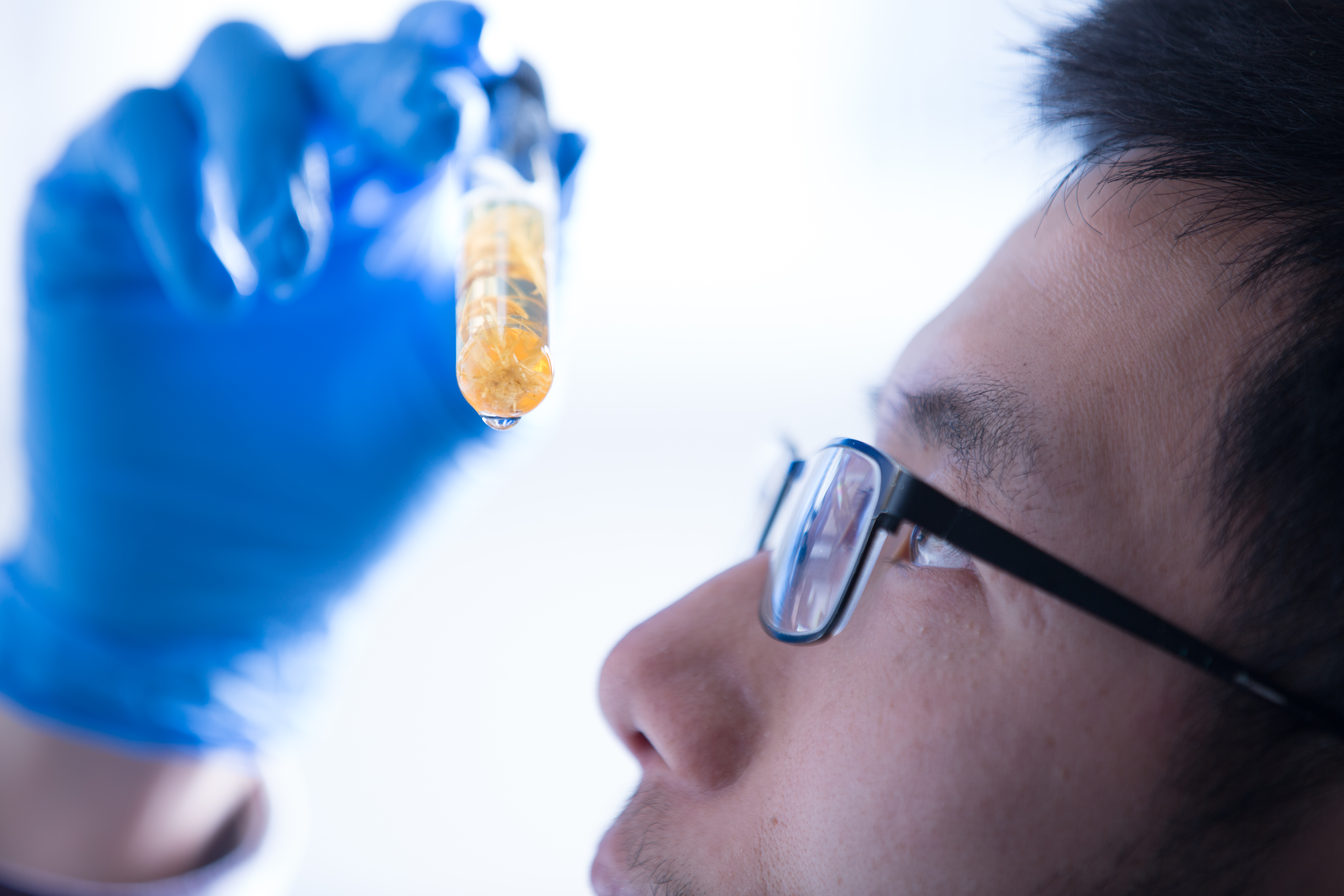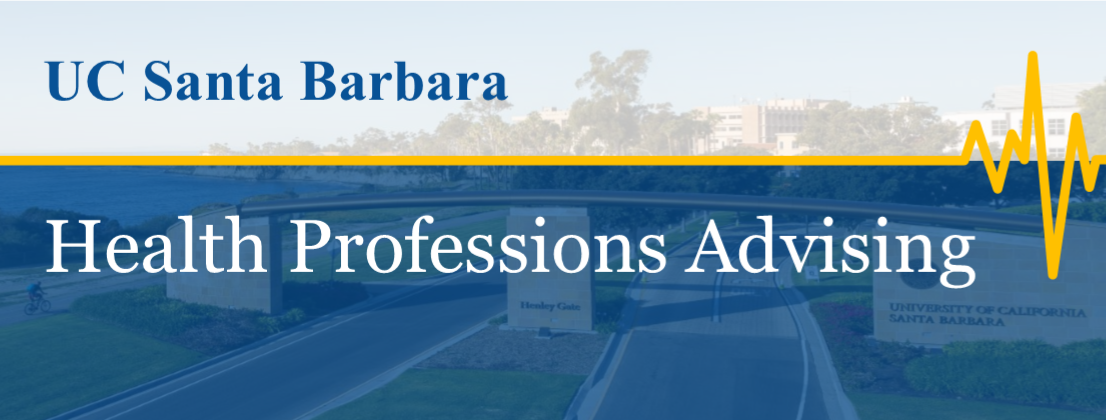UCSB Pharmacy School Preparation Chart Click Here

SO YOU WANT TO BE A PHARMACIST?
Pharmacy is the branch of health sciences that deals with the preparation, dispensing, and proper utilization of drugs. A pharmacist is a health care professional who is licensed to prepare and sell or dispose of drugs and compounds and can make up prescriptions. The following is a brief guide to courses you should consider enrolling in.
PREREQUISITES: THESE ARE GENERAL PREREQUISITE COURSES THAT MANY PHARMACY SCHOOLS REQUIRE FOR ADMISSION; HOWEVER, COURSE REQUIREMENTS OFTEN VARY FROM ONE SCHOOL TO THE NEXT. ADDITIONALLY, THERE ARE SEVERAL OTHER COURSES THAT ARE NOT REQUIRED BY SOME PHARMACY SCHOOLS, BUT ARE HIGHLY RECOMMENDED. WE ENCOURAGE ALL STUDENTS TO VISIT THE WEBSITES OF THE PROFESSIONAL SCHOOLS YOU PLAN TO APPLY TO IN ORDER TO FAMILIARIZE YOURSELF WITH EACH SCHOOL'S ADMISSION REQUIREMENTS AND PROCESS. IF YOU ARE STILL UNSURE WHETHER COURSES YOU'VE TAKEN WILL SATISFY A PARTICULAR SCHOOL'S REQUIREMENTS, PLEASE REACH OUT DIRECTLY TO THE SCHOOL.
|
Chemistry (Full Year/3 Quarters) |
CHEM 1A (4 units): General Chemistry CHEM 1B (3 units): General Chemistry CHEM 1C (3 units): General Chemistry CHEM 2AL (2.5 units): General Chemistry Lab CHEM 2BL (2.5 units): General Chemistry Lab |
|
Biological Sciences (Full Year/3 Quarters) |
MCDB 1A (4 units): Intro. To Biology I MCDB 1B (3 units): Intro. To Biology II--Physiology MCDB 1LL (1.5 units): Intro. To Biology I Lab EEMB 2 (2 units): Intro. To Biology II—Ecology and Evolution EEMB 3 (3 units): Intro. To Biology III EEMB 2LL (1.5 units): Intro. To Biology Lab II |
|
Organic Chemistry (Full Year/3 Quarters) |
CHEM 109A (4 units): Organic Chemistry CHEM 109B (4 units): Organic Chemistry CHEM 109C (4 units): Organic Chemistry CHEM 6AL (3 units): Organic Chemistry Lab (Chemistry 109A with a minimum grade of a C-; and Chemistry 109B (may be taken concurrently)) CHEM 6BL (3 units): Organic Chemistry Lab (Chemistry 6AL and 109A with a minimum grade of C-; and Chemistry 109B). Note: Even though this lab is no longer required for MCDB/EEMB majors, whether or not you choose to take the second lab should be based on the requirements for your major and your own research into the admissions requirements at each pharmacy school you hope to apply to. If unable to find the information on a particular program's website, email their pharmacy school admissions office for clarification. |
|
Physics (Full Year/3 Quarters) |
PHYSICS 6A (3 units) and PHYSICS 6AL (1 units): Introductory Physics w/Lab PHYSICS 6B (3 units) and PHYSICS 6BL (1 units): Introductory Physics w/Lab PHYSICS 6C (3 units) and PHYSICS 6CL (1 units): Introductory Physics w/Lab Note: Students who complete the PHYSICS 1 series will need to take PHYSICS 1-2-3-4-5 and PHYSICS 3L-4L-5L to satisfy a full year of Physics with labs. If your major only requires you to complete through PHYSICS 4 and PHYSICS 4L, then you may enroll in PHYSICS 6AL to satisfy the final lab requirement. If allowed by your major, we encourage students to complete the Physics 6 series instead. Note: Whether or not you choose to take the full year of Physics with lab should be based on the requirements for your major and your own research into the admissions requirements at each pharmacy school you hope to apply to. If unable to find the information on a particular program's website, email their pharmacy school admissions office for clarification. Note: Mathematics 2A or 3A or 34A or AP Math AB Exam score of 3 or higher are required for Physics 6A. Math courses may be taken concurrently with Physics 6A |
|
Biochemistry (1 Quarter) |
MCDB 108A (4 units). General Biochemistry (UCSB prerqs: MCDB 1A, and EEMB 2 and MCDB 1B; and Chemistry 1A-B-C; and Chemistry 109A-B-C (Chem 109C may be taken concurrently). Completion of all listed prerequisites with a grade of C or better.); MCDB and Non-MCDB majors may choose to take MCDB 110 (UCSB prerqes: Chem 1A-B-C and 109A-B, with grades of C or better, are prereqs.) *MCDB 108B Highly Recommended. Note: Some pharmacy schools may only require a single course in Biochemistry; however, others may equate 2 quarters of Biochemistry to 1 semester of Biochemistry. Whether or not you choose to take a second Biochemistry course should be based on the requirements for your major and your own research into the admissions requirements at each pharmacy school you hope to apply to. If unable to find the information on a particular program's website, email their pharmacy school admissions office for clarification. |
|
Microbiology |
MCDB 131/131L (MCDB 101A and either Chemistry 109A-B-C or Chemistry 109A-B and MCDB 110 are prerequisites for MCDB 131.) Alternatively, students may choose to take Microbiology (BMS 157 at SBCC) at a community college, but taking the course at a four-year institution is recommended. Note: Many but not all schools require a microbio lab, and MCDB 131L can be a very difficult course for non-Microbiology majors to enroll in at UCSB. Students will often take the course and the lab at a community college. |
|
Human Physiology (and possibly Human Anatomy) |
BMS 108 Human Physiology at SBCC or a four-year institution that offers the course with a lab. (BMS 107 Human Anatomy may also be a requirement for some programs.) Programs may require either Human Physiology with Lab or both Human Physiology and Human Anatomy with lab. If taking a combined Anatomy & Physiology course, some programs reguire both parts I and II. |
|
Math* |
|
|
English/Writing (Full Year/3 Quarters) |
A combination of 3 UCSB courses taken in the Writing or English departments should fulfill the full year of English requirement for most California pharmacy schools. Courses that satisfy GE Areas A-1 and A-2 will satisfy the English requirement. Click here for information on these courses. Also, courses that satisfy the GE Special Subject Area Writing requirement should not be considered sufficient to satisfy the full year of English requirement. Remember, it is your responsibility to check the admissions requirements at each pharmacy school you hope to apply to in order to make sure that the courses you take at UCSB and elsewhere will satisfy each program's specific requirements. |
|
Social/Behavioral Sciences & Humanities (2 Courses) (Highly Recommended; May be required by some programs.) |
Pharmacy schools often require one course each in Economics and Public Speaking. For a list of Public Speaking courses, please check this website. Note: You will need to check with individual programs to determine which UCSB courses will satisfy the Public Speaking rquirement. |
|
Highly recommended: Prerequisite courses listed are minimum requirements; however, most successful applicants will have exceeded the minimum requirements by taking additional upper division science courses. Examples of appropriate courses include but are not limited to: |
MCDB 101A - Molec. Genetics I
MCDB 103 - Cell Biology MCDB 131 - Gen. Microbiology
|
|
If you choose not to major in one of the natural sciences, you may wish to include one or two additional science electives in your program of study if your schedule permits. *Math requirements may vary by school so be sure to research individual prerequisites. |
|
|
Sample Pre-Pharmacy Course Schedule, Years 1 & 2 (To be used as a guide and is not intended to be strictly adhered to by all pre-pharm students!) |
|||||||||||
|
|
Fall Quarter |
Winter Quarter |
Spring Quarter |
||||||||
|
Year 1 |
Chem 1A Mathematics or Statistics (See above) GE or Elective |
Chem 1B + 2AL Math or Stats (See above) GE or Elective GE or Elective (if you feel you can handle another course) |
Chem 1C + 2BL Math or Stats (See above) GE or Elective GE or Elective |
||||||||
|
Year 2 |
MCDB 1A Chem 109A GE or Elective GE or Elective? |
MCDB 1B EEMB 2 MCDB 1LL Chem 109B Chem 6AL (May be done later) |
EEMB 3 EEMB 2LL Chem 109C Chem 6BL (May be taken later.) GE or Elective |
||||||||
|
|||||||||||
Additional Requirements
The Pharmacy College Admission Test (PCAT) was offically retired as of January 10th, 2024. There will not be any additional offerings of the exam in the future and pharmacy programs will no longer require a standardized exam as part of their admissions process.
Grade Point Average (GPA): Minimum GPA requirements vary from program to program, but MOST programs have a minimum 3.0 GPA requirement, but competitive GPAs are closer to a 3.3. In addition, most programs require that all prerequisite courses must be passed with a “C” or better.
Transcript Review and Grade Trends: Admission committees conisder a number of factors incluidng and beyond the final grades earned in courses. For example, admission committees will review and consider the number of courses/units taken each quarter, whether courses were taken P/NP, retaken, and were withdrawn from, resulting in a W on the official transcript. To learn more about what your official transcripts communicate to admissions committees, please review the AAMC's Anatomy of an Applicant Guide. (A link to the guide can be found in the first paragraph in the Current Students section of our website.)
TIMELINE
| **Students should note that there is no set path or timeline that dictates when students have to take their admission test or apply to professional school. Professional schools DO NOT penalize studenst for not applying at a particular time. The timeline above is only a guide, and students should plan to meet with a pre-health advisor to discuss their individual goals and needs | |
|
Freshman/First Year Visit Career Services to explore interest in health professions and learn more about your personal skills and interests. Start taking intro sciences (General Chemistry sequence). Think about possible majors (Study what you love). Connect with a Pre-Health Staff or Peer Advisor Consider volunteer opportunities (campus and community) 2nd quarter. Start clinical experience (Pharmacy Tech, EMT, Scribe, Shadowing, etc) during breaks and summer. Go to your professors’ office hours. Explore student organizations. |
Sophomore/Second Year Continue with next sequence of science courses (See Above.) Stay involved in extracurricular activities (Medical, volunteer, etc). Begin to think about becoming an officer in your organizations or explore other leadership opportunities. Begin research on professional schools, their requirements, and assess your competitiveness. BOTTOM LINE: Keep working on the things you established your first year!! |
|
Junior/Third Year (If not taking a Gap Year.) **If taking a Gap Year, then taking the PCAT and completing the application can wait until senior year) Talk to your staff pre-health advisor member to narrow program options and assess competitiveness. Identify at least 3 individuals to write letters of recommendation. Keep working on the things you have established thus far. Schedule a mock interview with Career Services.
**Complete Application (PharmCAS). |
Senior/4th Year (If no Gap Year) Submit Application(s) if you haven’t already. Wait to be contacted for interview from pharmacy schools. Continue with activities and professional experiences/shadowing. Talk with an advisor about Plan B if necessary. Finish degree requirements and GRADUATE! If Taking 1 or more Gap Years: Schedule a mock interview with Career Services.
**Complete Application (PharmCAS). |
ADDITIONAL RESOURCES:
The American Association of Colleges of Pharmacy (AACP) Click Here
Pharm.D Program Directory Click Here
Course Pre-requisites Chart (by institution) Click Here
PharmCAS Admissions Guide Click Here
